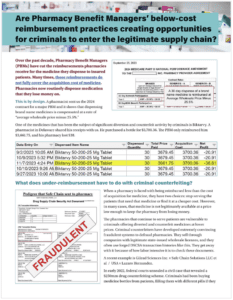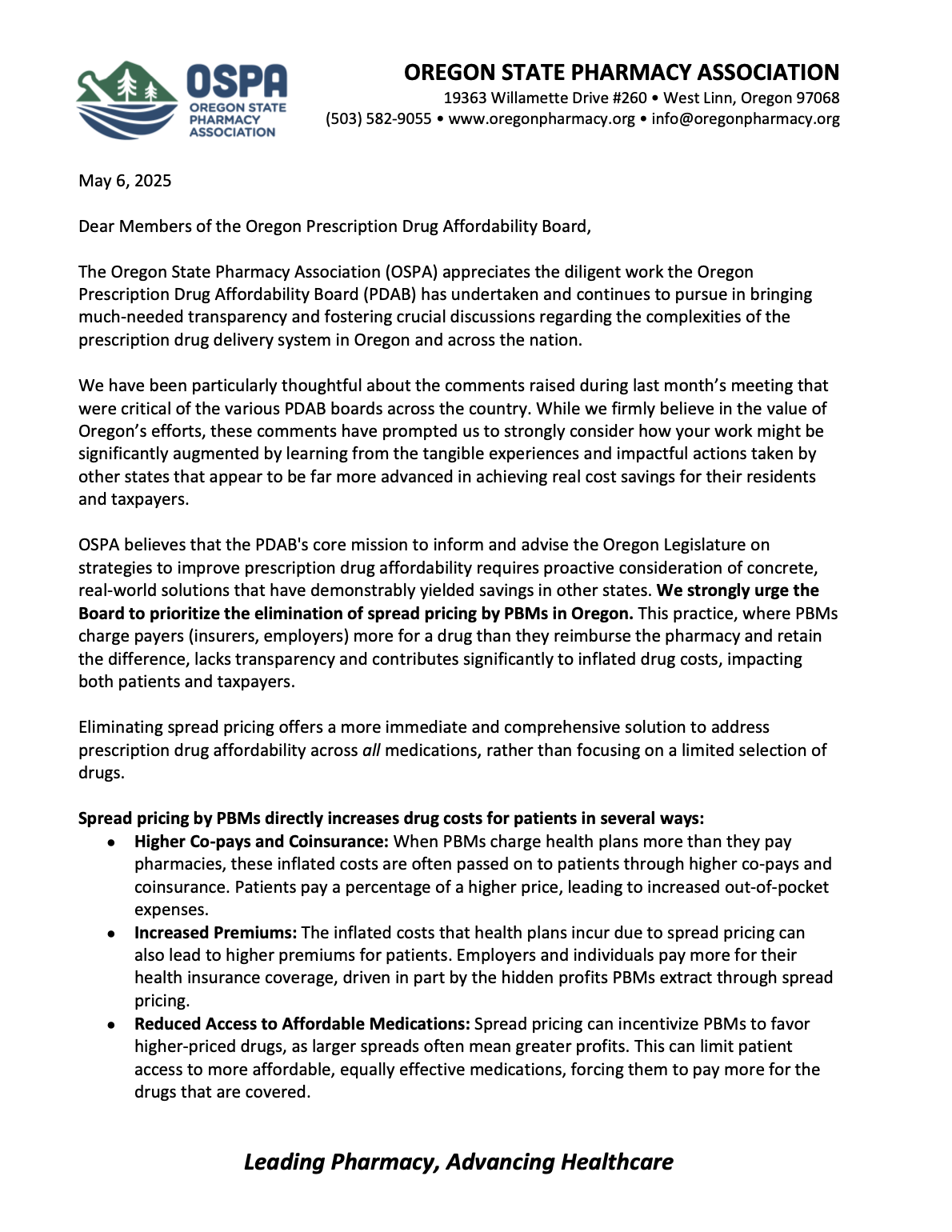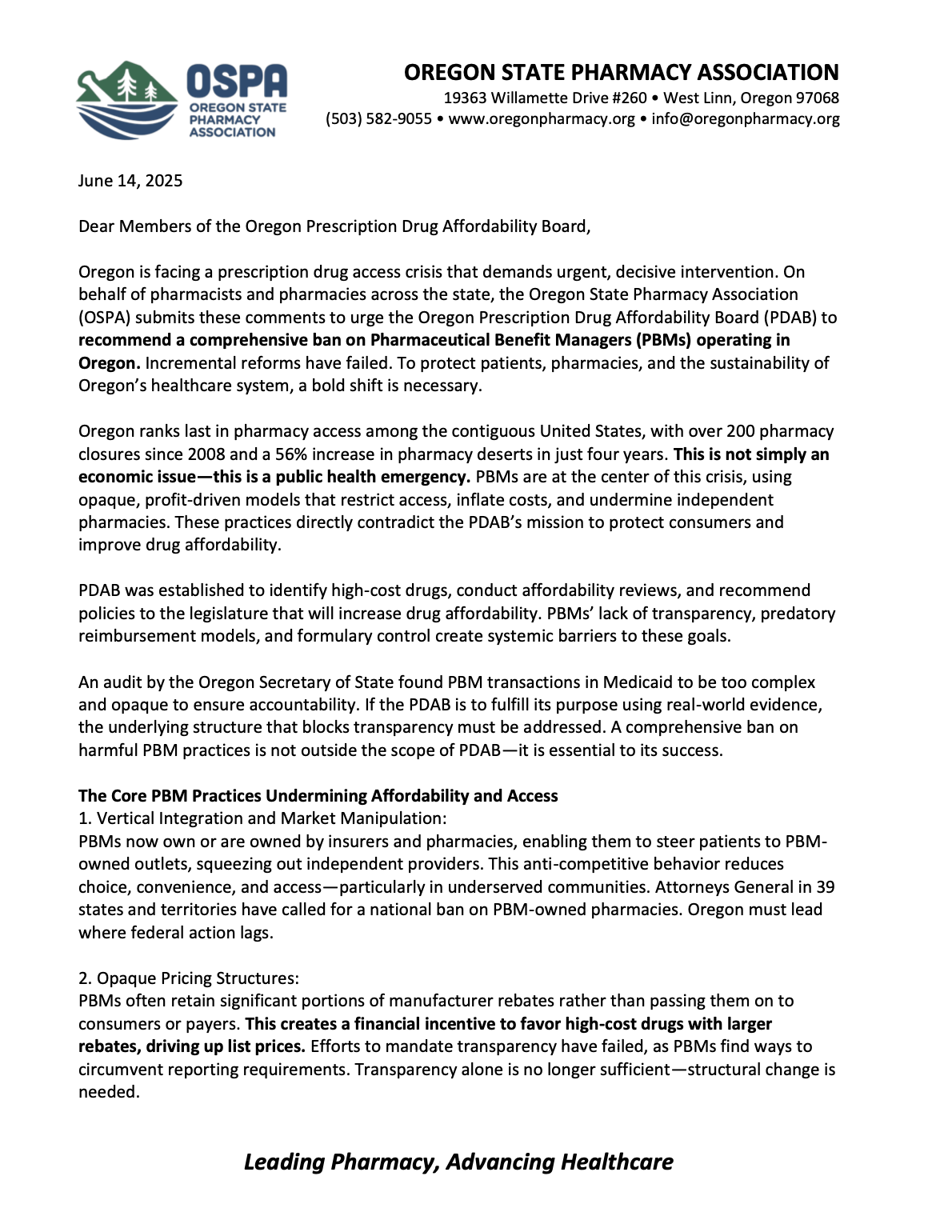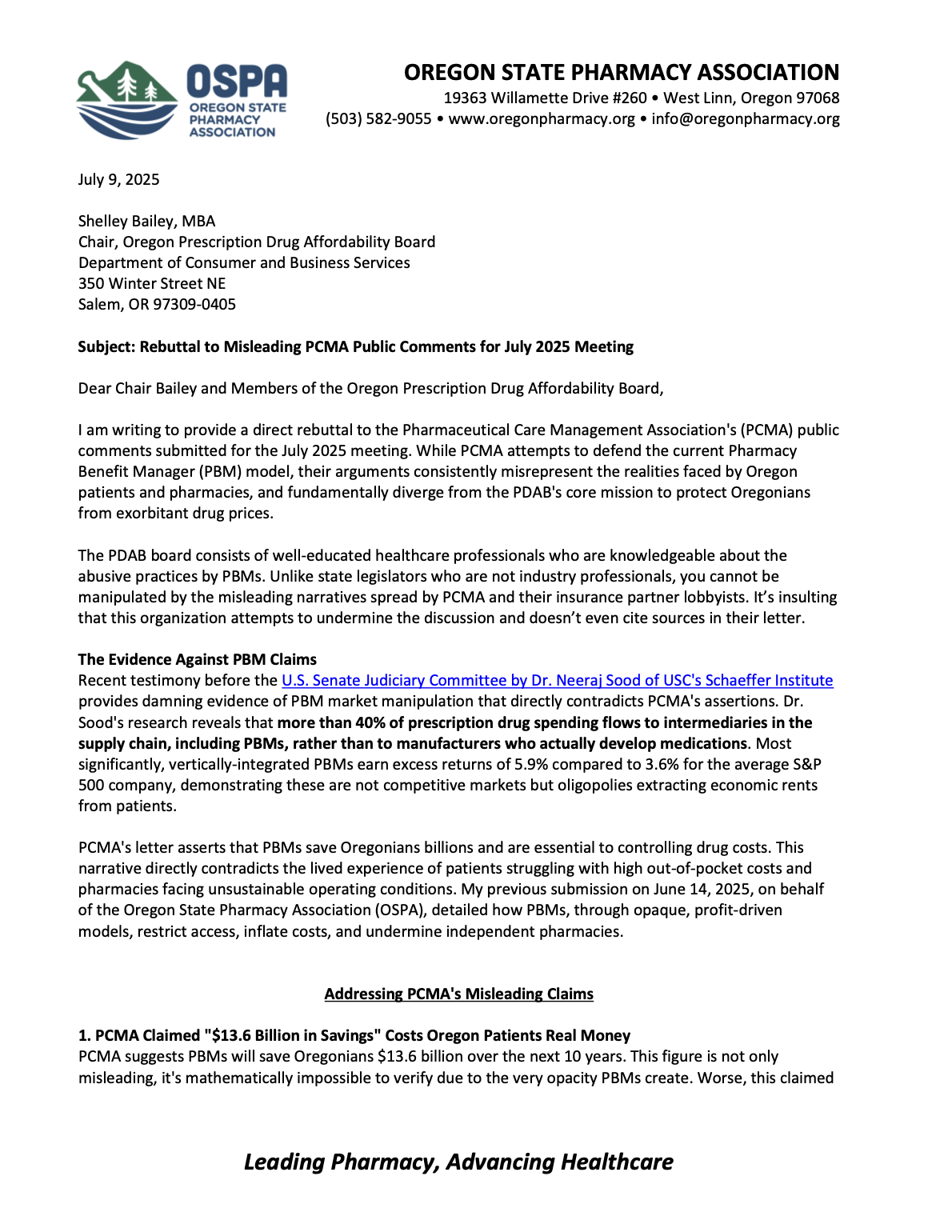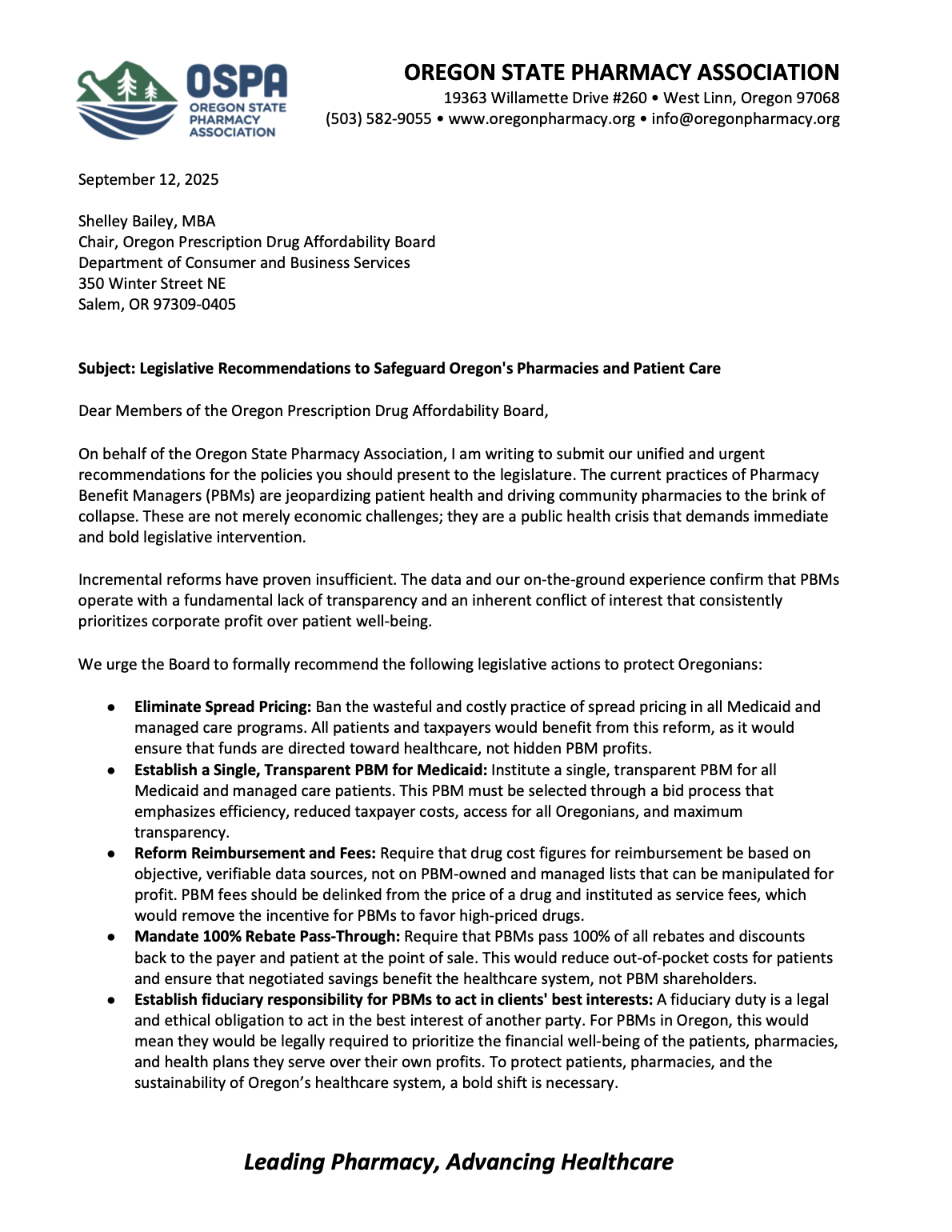Oregon State Pharmacy Association makes the case for PBM reform, not payment limits
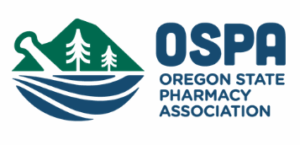 This summer, Brian Mayo, Executive Director of the Oregon State Pharmacy Association (OSPA), made the case for state-based PBM reform as a better way to rein in drug prices.
This summer, Brian Mayo, Executive Director of the Oregon State Pharmacy Association (OSPA), made the case for state-based PBM reform as a better way to rein in drug prices.
Oregon is among several states with a prescription drug affordability board (PDAB) pursuing upper payment limits (UPLs) on specific drugs to make them more accessible to residents. Unfortunately, UPLs aren’t a strong policy solution, because they only limit what insurers and patients pay for a drug, not what it costs for pharmacies to stock it.
Price caps like these place additional financial pressure on pharmacies that are already battling systemic under-reimbursements from pharmacy benefit managers (PBMs). Their closures increase access problems for patients—especially in Oregon, which has seen a 56% percent increase in pharmacy deserts in just the past four years.
OSPA sent four letters to Oregon’s PDAB between June and September 2025, strongly advocating that board recommend legislative action to eliminate a variety of PBM practices that prioritize profit, mandate the return of manufacturers rebates and discounts to payers and patients, streamline costs by establishing a single PBM for Medicaid, and legally require PBMs to act in clients' best interests.
Want the details? Click on the letters below.
Related resources on
This 2-page summary explains the problem of PBM under reimbursements.
May’s letter addressed spread pricing, and cited other states’ successes in reducing costs with PBM elimination or reform.
June’s letter argued for banning PBMs on the grounds that they undermine medicine affordability and access for Oregonians.
July’s letter cited Senate testimony, research from 3 Axis Advisors and a Secretary of State audit to rebut written comment by the Pharmaceutical Care Management Association.
September’s letter recommended legislative action to:
- eliminate spread pricing,
- establish a single PBM for Medicaid,
- reform PBM reimbursement,
- mandate passing manufacturer rebates and discounts to the payer and patient,
- require PBMs to act in clients' best interests,
- and restrict formulary practices that prioritize PBM profit over patient care.
